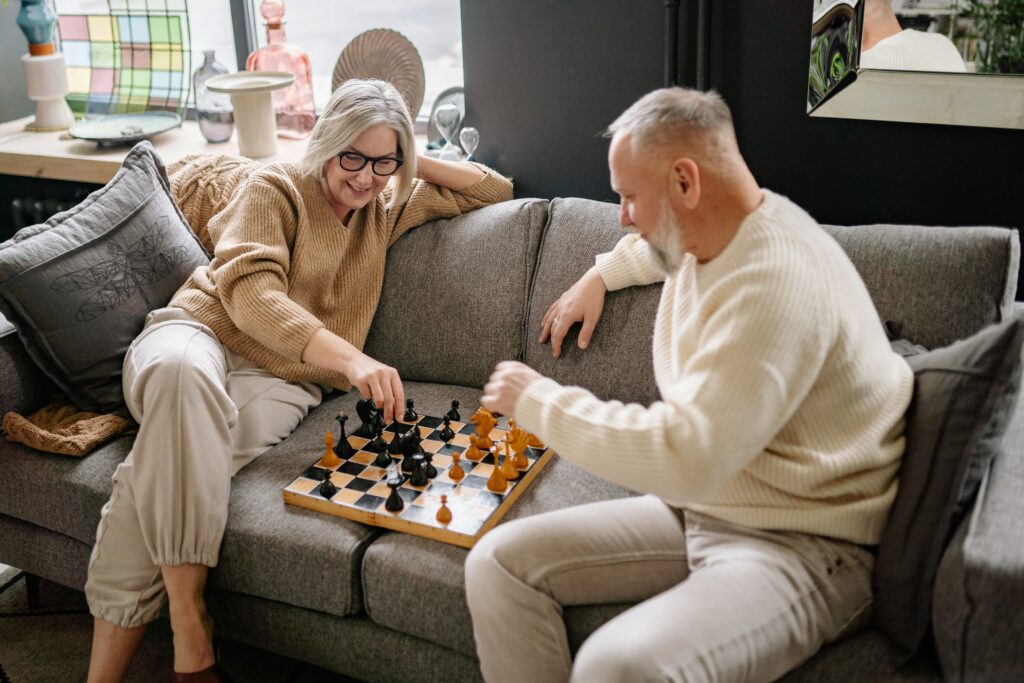Life is stressful, no matter what age people are. Whether you are a child, adolescent, young adult, adult, or senior citizen. For some seniors, life can be extremely stressful, due to certain medical conditions. Perhaps they have mental issues, mobility issues, financial problems, or sometimes family problems. Other situations can lead to seniors having stress, such as elder abuse. The golden years for seniors should not be so stressful. Yes, it is true that stress is a part of every person’s life, but it shouldn’t consume you. Life for seniors should be filled with joy and happiness, spending time with the grandkids, or just enjoying their retirement by traveling to places where they possibly could not do in their youth.
Identifying the Source of Stress

Stress can start from almost anywhere, So let’s discover some of the most common causes of stress in older adults:
• Health problems
• Financial hardship
• Home responsibilities
• Grief and loss
• Family problems
• Challenges of aging
• Loss of independence
There are many ways to de-stress your life and there are several types of activities that older adults can do to help relieve the stress, whichever the type, in their lives. Below are a few examples of how to de-stress your life as a senior. They are both fun and relaxing, and can even help reduce stress and anxiety for those who suffer from a mental illness. Let’s check them out.
1. Physical Activities

The first one is doing any form of physical activities. You can talk to any doctor and they will tell you exercising is one of the best ways to not only lose weight, but lower your risk of stress-related complications to your health. Physical exercise also can reduces stress hormones, such as adrenaline and cortisol. Examples of these are taking a spinning or swimming class, which is known to help seniors relieve stress. For seniors who are able, participating in a physical activity is a great way to relieve stress. It releases endorphins in the brain which can also improve your mood. Seniors should choose an activities that fits their needs and is easy to manage. Once you have a plan, start slow and easy. If you feel comfortable to do so, advance in your exercise routine. Here is a short list of other physical activities that seniors can do to relieve their stress levels:
- Walking
- Doing chair exercises
- Aerobic exercises
- Cycling/biking
- Stretching
2. Relaxation Activities
Both physical and mental health can sometimes go hand-in-hand. Both can relieve stress throughout the body. Mental stress can affect you physically, and can lead to some mental stress symptoms, such as dizziness, muscle tension, high blood pressure, heart attacks, or even strokes. Relaxation exercises are one of the ways to calm your spirit and is great for your overall health. Examples of these techniques are meditation, yoga, dancing, and listening to soothing music. Other relaxation activities are taking an art class, or simply playing a game of checkers and chess. Some seniors choose to exercise deep breathing techniques to effectively relax from any stress-induced problems that occur throughout the day. Some suggest doing the 4-7-8 method when deep breathing. This involves breathing in for four counts, holding for seven counts, and then breathing out for eight counts. It is a great way to calm your nerves as well. Doing relaxation techniques can prevent seniors from feeling anxious and decrease the chance of being worried about things, especially when they have no control of.
3. Music and Art

Both music and art can relieve stress in almost anyone. And you don’t have to be good at it to still receive the benefits that both can do to your mental health. Research shows that just singing can cause the brain to release endorphins and oxytocin, the hormones that improve your mood and can decrease stress levels. In fact, people that sing in a group, tend to have a more meaningful experience than singing alone. To combat a build-up of stress, seniors should look for ways to get involved throughout their community, such as community or church choirs. Another type of stress reliever is dancing. When you are moving to the rhythm of your favorite band or group, you are not only exercising, but also reducing stress. Your focus is then on having fun, instead of the challenges of life.
The benefits of reduced stress can also be found in those who are more inclined to pick up a paintbrush and canvas a work of art. Many seniors love to have hobbies or participate in art projects to help relieve stress. Some examples of these are drawing, painting, knitting, and also making jewelry. Some who may need more assistance can start with adult coloring books.
4. Benefits of Nature
There are many benefits that nature can offer to seniors, reducing stress is one of the top of these. Whether you are just going for a stroll through the neighborhood or hiking at a national park, being in nature an ease the stress of everyday problems. Nature reduces stress in two aspects, physically and psychologically. For some seniors, it can also provide good mental health and give the person a strong sense of satisfaction. Those with limited mobility can also enjoy the benefits of nature. Even if you can’t walk long distances, there are still ways to reduce stress with nature. Gardening helps reduce stress while promoting a fun hobby, either alone or with the grandkids. Many seniors take advantage of the benefits of nature by reading a book on a park bench or having their morning coffee while sitting on their front porch.
5. Cognitive Thinking

Everyone gets stressed out at times, this is a normal occurrence for many people. However, if it is affecting the way you perceive things or how you comprehend knowledge, then you may have a problem. It’s possible that you may be suffering from chronic stress or anxiety, which is not healthy for anyone, especially seniors. Seniors who are struggling with stress-related issues, they could benefit from playing brain games or using cognitive stress management techniques. One common type of strategy is called cognitive restructuring, which changes the way one looks at negative situations in life and finds a new perspective or different angle in how to approach them. Sometimes cognitive restructuring is used to recognize unhealthy thought patterns, such as an all-or-nothing thinking process. Those with stress-related cognitive impairments should talk to their doctor for the best approach to manage stress.
6. Benefits of Pets
One last way that seniors could de-stress their life is by having a pet. There have been many studies showing research that owning pets can reduce stress levels. In fact, this benefit affects seniors on the highest level. And, the truth is it really doesn’t matter what kind of animal you have; however, there are some kinds of animals or breeds that are better for seniors than others. When you own a pet, you reduce cortisol levels and lower your blood pressure. Pets can also help combat loneliness, which is a major a major contributor to stress. Owning a pet is also a commitment, because they need attention too. If you can’t afford to take care of a pet yourself, seniors can still benefit from these furry friends by volunteering at a local animal shelter.
Signs and Symptoms of Stress in Elderly

There are many types of signs seniors should be aware of when dealing with stress. Some signs can happen suddenly, while others may build-up over time. Here are some of the most common signs and symptoms older adults should know about:
- Changes in eating habits
- Irritability, anxiety, or other changes in mood
- Difficulty concentrating
- Frequent sickness
- Withdrawal or isolation
- Short-term memory problems
- Shortness of breath
- Tension headaches
- Difficulty sleeping
- Decline in hygiene and self-care
The Bottom line on Stress
Learning to manage stress is a necessary skill at any age, coping with stress is especially important for senior health. There is a catch, learning to cope with stress and managing stress does not take the problems that are causing the stress to go away. The issues that are triggering the stress will still be there.
To some, stress management is just a bandage. It is not a miracle cure. Sometimes t’s hard to witness a person struggling with stress and all the problems that come with it. Stress management activities can help, but for some, it’s just a distraction from real problems that lie underneath. Yet they can help seniors and everyone suffering make it through another day. So when you find a method that works for you, make sure you put it into your normal routine, which can help prevent the stress from building up and deteriorating your health.
If not treated, chronic stress can lead to a more serious problem. Stress is a serious concern for seniors. That is why family, friends and caregivers need to know how to help their loved ones combat stress. Keep in mind, just because a person is disabled mentally or physically, or elderly, does not mean they are useless. Everyone has worth, no matter what age you are.